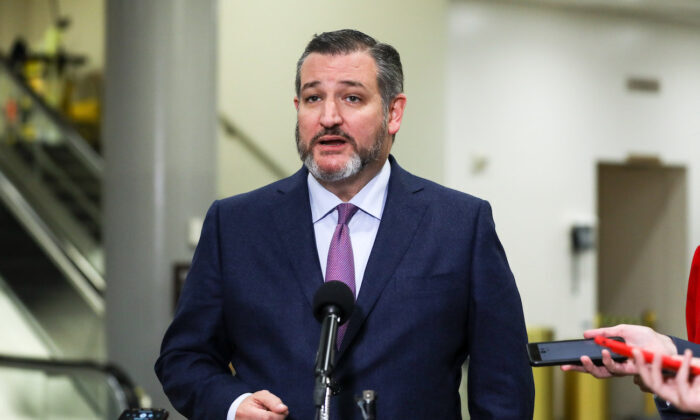
Cruz sagde i en erklæring den 1. december: 'Denne appel rejser alvorlige juridiske spørgsmål, og jeg mener, at retten skal behandle sagen hurtigst muligt.'
Appellen, der kommer i form af en nødbegæring til den amerikanske højesterets dommer Samuel Alito (pdf), beder højesteret om at forbyde Pennsylvania-guvernøren og statssekretæren at 'tage officielle skridt til at opregne, beregne, dække, attestere, eller på anden måde færdiggøre valgresultatet. ' Hvis sådanne handlinger har fundet sted, beder andragendet om et påbud, der annullerer dem og 'gendanner status quo' inden certificering.
Kommentar: Delvist oversat af Sott.net fra Ted Cruz calls on SCOTUS to take up Pennsylvania election challenge
The state Supreme Court, in an order issued on Nov. 28 (pdf), dismissed a GOP lawsuit filed by Rep. Mike Kelly (R-Pa.) and others (pdf), which claimed that a 2019 state law permitting no-excuse absentee ballots was unconstitutional. The suit requested that the state reject mail ballots submitted under the law, known as Act 77, or let state lawmakers choose presidential electors.
In dismissing the lawsuit, the state Supreme Court said the lawsuit had not been filed in a "timely manner," since Act 77 was signed into law last year. The judges argued that, by waiting to file their complaint until days before the county of boards of election were required to certify the election results, the plaintiffs' request could "result in the disenfranchisement of millions of Pennsylvania voters" who voted by mail.
The state Supreme Court ruling, however, appears to leave open the broader merits of the case, namely that Act 77 may have required an amendment to the state constitution.
Cruz, in his statement, said that, "the Pennsylvania Constitution requires in-person voting, except in narrow and defined circumstances. Late last year, the Pennsylvania Legislature passed a law that purported to allow universal mail-in voting, notwithstanding the Pennsylvania Constitution's express prohibition."
Referring to the appeal to the U.S. Supreme Court, Cruz said it "argues that Pennsylvania cannot change the rules in the middle of the game. If Pennsylvania wants to change how voting occurs, the state must follow the law to do so."
One of the plaintiffs, Republican congressional candidate Sean Parnell, told KDKA on Nov. 30: "While we believe that Act 77 is certainly a state issue, we also believe that there are very important federal questions nested within it. So what we're doing is we're looking to appeal to the Supreme Court on those federal questions."
Cruz said that, ordinarily, the U.S. Supreme Court would stay out of election disputes, particularly ones that relate to state law.
"But these are not ordinary times," Cruz wrote, arguing that many Americans believe "the election was rigged."
"The bitter division and acrimony we see across the nation needs resolution," he wrote, arguing that the high court's willingness to take up the appeal "on an emergency expedited basis" would help restore confidence in America's democratic system.



Kommentar: See also: